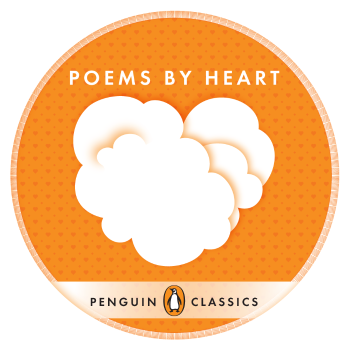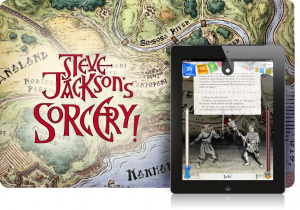The inkle blog
Steve Jackson's Sorcery! is here
It's celebration time at inkle: as Part One of the Sorcery! saga is now available for iPad, iPhone and iPod touch from the App Store. The Shamutanti Hills await!

Sorcery! at PAX East

Two weeks since PAX already? Seems like only yesterday when we were stepping into the main hall of the Convention Centre bleary-eyed and jet-lagged, with a hundred printed Sorcery! maps, and a build with a 3D version of the same, ready to let some journalists play.
Nerve-wracking stuff: our first big games convention - arguably our first game, unless you count Poems By Heart - but also the first time anyone outside of inkle had played the game. Would they get it? Would they like it? Would they get destroyed by the first Bandit and never see the Hills?

Poems By Heart from Penguin Classics
Nothing to do with Sorcery! today – instead, we’re really excited to be finally able to announce...
Poems By Heart from Penguin Classics is an app for iPhone and iPad that we designed and developed for Penguin Classics in the US.

Sorcery screenshots!
We're busy getting ready for our appearance at PAX East next week (yikes!) and as part of that, we've put up the first screenshots from Sorcery! The shots show the main game interface, along with the spell-casting, combat and map in action.

inklewriter on PC Gamer's site
February is only eleven days old and we’ve already seen inklewriter come up twice on PC Gamer’s site: enough, we thought, to warrant a quick blog post to celebrate.


inklewriter updated!
To celebrate the release of Future Voices, our anthology of inklewritten stories, we've released a raft of new features for inklewriter. I know, for a moment there we were in danger of coming out of beta...
There are updates to the way stories can be read and played, as well as new ways to vary the text that gets written. But possibly the most important update in this whole package won't make any difference to the story itself, but to the writer...

A Musical Analogy

An analogy just popped into my head that goes some way to explaining why I like the idea of interactive books.
While listening to music (Mozart this time, but this holds true to any musical genre), I often have a longing to play along. I wish I am the pianist tinkling the ivories expertly with passion and precision. Some people drum their fingers, some whistle along, others can play along. (As a half measure, I can recommend learning a simple blues scale in a simple key and bashing a keyboard along to some jazz. There are few notes to learn, and most things sound good!)
Guitar Hero was popular because it so successfully constructed the feeling that you were playing, despite the relative extreme simplicity compared to the real thing.
The feeling that you’re a part of the music elevates it further than listening passively. It helps you to concentrate, discern the themes and follow the threads.
And, whether we’ve achieved it or not, this is precisely what we’re trying to do with inklebooks. The point is absolutely not to allow the player to do anything and go anywhere or change the story. The point is to let them play along within the musical score, working inside a narrow margin of narrative creativity. (As an aside, how nice to confidently be able to use the word “player” over “reader” for once!)
An opportunity for self-expression goes a long way as long as the boundaries are well-defined. At the very least, as the lead guitarist or first violin, you should be able to vary the intensity and timing of the notes. But we can go further: we can provide the narrative equivalent of a solo with the opportunity for improvisation. However, the boundaries and parameters of this improvisation needs to be well defined. You need to start at the right time, in the right key, continue the narrative of the composition, and hand over gracefully to the rest of the band by the end.
Therefore, the goal is to bring the concentration and the focus to a magnificent story that players of guitars, both real and plastic, get when they play along to a pre-written score. Very few video games have done this successfully, despite their mastery of immersion and interactivity in other contexts. Usually the story is interleaved with the player’s interactions, rather than integrated.
And that is perhaps inkle’s highest ambition.

Sorcery update for December
Here at inkle we’re winding down for the Christmas break, but we didn’t want to go silent without first letting you know how the Sorcery app is coming along.

Hallowe'en talks

Hallowe’en has been and gone, and it’s been Frankenstein season here at inkle. First was the very pleasant news that Apple were featuring the app as part of their seasonal specials. Then there were two events where we got to show the book and talk about how it works to people on both sides of the industry: firstly, to a group of readers, and then, to a conference of up-and-coming new entrants into the world of publishing.






